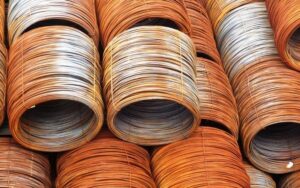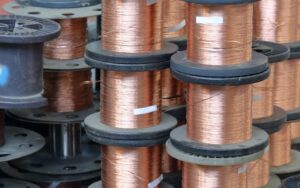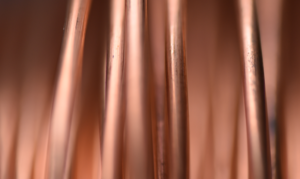Table of Contents
Coil winding technology that involves ultra-fine wires is a crucial method to prepare inductive components within miniaturized medical devices. This technology is also suitable for different manufacturing methods and helps to prepare micro-coils with the help of copper or any other conductive material wire. With the help of coil winding technology and thermal compression bonding technology, modern manufacturers not only build micro-coils but also provide connectivity between ultra-fine wires and also between micro-coils and other parts of a medical device. This technology is effective to work with 9 microns ultra-fine wires that are 5 to 12 times thinner in diameter compared to human hair.
The essential characteristics of the micro-coils hugely depend on the requirements of the application area. Therefore, the requirements of the customers also differ on the basis of the application area. Customers determine the materials that the manufacturers need to use for a specific micro-coil manufacturing process. The materials that are commonly used for the micro-coils are copper, stainless steel, aluminum, titanium, and high purity and conductivity precious metals such as platinum, gold, etc. When it comes to the manufacturing of micro-coils, you should always carefully select the materials.
Some Commonly Used Materials and Their Characteristics:
- Copper:
After silver, copper offers the most conductivity. For this outstanding conductivity and other crucial physical properties, manufacturers use copper wire to prepare the micro-coils for the medical industry. In terms of durability and reliability, copper has a significant role. Therefore, in several applications, copper alloys are popularly used. The coating of the copper wire (enameled wire) is also essential to protect the wire from external damage. However, on the basis of the application area, manufacturers decide what type of coating is suitable.
- Stainless Steel:
There are multiple characteristics of stainless steel that are useful for micro-coil manufacturing, such as corrosion, durability, heat resistance, fully recyclability, and strong yet lightweight. Therefore, stainless steel coils are effective for heating applications. For example, stainless coils are useful in cryotherapy treatment to defrost cancer tumors. These coils also play a crucial role in corrosive environments.
- Aluminum:
The micro-coil winding process for medical apparatus requires a large number of turns. This large number of turns of the wire can ultimately result in the heavyweight of the micro-coil. Therefore, to minimize the weight of the micro-coils, manufacturers require an aluminum wire for the coils. However, the major drawback of aluminum coils is that these coils are expensive as a result of high manufacturing and coating costs. This high cost is mainly responsible for the rare use of these coils.
- High Purity Precious Metals:
The two main precious metals that have significant micro-coil applications are gold and platinum. High conductivity and chemical resistance properties are the crucial characteristics of these metals. Gold and platinum coils have effective applications in medical treatments where the coils come in direct contact with the skin or tissue. To prepare the biocompatible medical devices by following the regulations of the FDA, these coils are essential. Yet, due to the high costs of gold and platinum, there is a rare application of these coils. You will find the application of gold and platinum threads in some crucial situations, such as for reducing the resistance.
- Titanium and Titanium Alloys:
Titanium coils are useful in medical applications for their extraordinary corrosion resistance ability. Titanium offers non-magnetic properties that you can not expect from other ferromagnetic materials. As a result of lightweight and higher strength-to-weight ratio, titanium coils have substantial applications in medical and dental treatments.
Challenges for Coil Winding Technology:
Due to the size constraint in medical devices and other physical and environmental factors, the final size of the micro-coils has to be very tiny. While to solve this issue, manufacturers use ultra-fine wires, the tiny diameter of these wires creates another challenge for the manufacturers. Manufacturers also require maintaining the strict tolerance needs for the manufacturing of the micro-coils. Therefore, to control and monitor the tension and position of the ultra-fine wires, manufacturers require custom-made and innovative machinery during the manufacturing process. Instead of using traditional heat-based soldering methods, the coil winding and connectivity process requires thermal compression bonding technology. This technology is effective to eliminate all the micro-coil issues and offers corrosion-free, molecular, strain-free, and highly durable and reliable connections.




